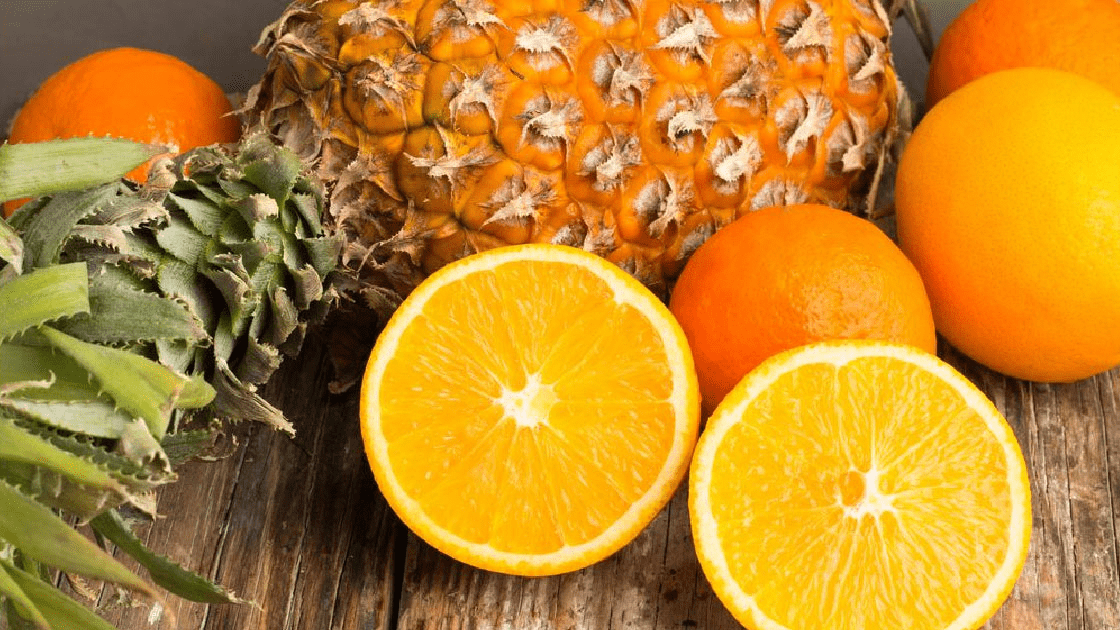Manage Your Allergies the Natural Way by Having These Foods
- 11 months ago
Do you often get a runny nose or skin rashes? The reason may be seasonal allergies. Seasonal allergies often arise due to pollen grains, foods, and other allergy-causing agents like viruses. We see allergic reactions due to the release of histamine in the body. When exposed to an allergen, our body’s mast cells (fighter cells) are activated and release histamine.
Histamine causes itchiness, sneezing, runny nose, and scratchy throat. Asthma and eczema are examples of chronic allergies. Over-the-counter antihistamine medicines often cause side effects such as drowsiness and dryness of the nose. If you don’t want allergic reactions and the side effects of antihistamine medications, use natural foods to combat allergies.
So, keep reading and protect yourself from allergies in a safe way with the following five natural foods!
1. Citrus fruits
Citrus fruits are rich in potent antioxidant and anti-inflammatory vitamin C. When you have an allergy, oxidative stress in your body is increased. A clinical research study has proved that vitamin C reduces oxidative stress and relieves the symptoms of allergy. Vitamin C is an essential vitamin with a recommended daily intake of 40 mg per day. The deficiency of vitamin C increases our chance of catching infections as well as allergies. So, fulfil your daily need for vitamin C by eating fruits like lemons, oranges, kiwis, strawberries, watermelon, guava, and apples. You must eat at least one citrus fruit daily in your breakfast, or you can have citrus juices as an energy drink whenever you are thirsty.
2. Pineapple
Pineapple is the potential source of bromelain, an enzyme that helps to digest proteins. The only source of bromelain is the stems and fruits of pineapple. A study has shown that bromelain reduces allergic sensitization and is helpful in the management of allergy and asthma. The National Centre for Complementary and Integrative Health (NCCIH) has specified that bromelain reduces inflammation, reduces swelling, and helps in wound healing. So, grab some pineapple chunks for breakfast or have a pineapple juice.
3. Fermented foods
Fermented foods are rich probiotics, which are gut-friendly bacteria that grow in our intestines and help us maintain our immunity. The imbalance in the immune system makes us prone to allergic reactions and infections. Probiotics are live bacteria that live in our gut, destroy disease-causing bacteria, and help in digestion. Management of allergy through probiotics is the safest approach and has shown benefits in babies too. Examples of probiotics are Bifidobacterium, Lactobacillus, and Saccharomyces boulardii. You can get them through curd, yogurt, buttermilk, and fermented foods like kimchi and tempeh. Eat curd or drink buttermilk as a part of a healthy diet.
4. Cold water fish
These are essential fatty acids that our body needs for various metabolic processes. Omega 3 fatty acids exert strong anti-allergic and anti-inflammatory responses. They may help ease stuffiness and nasal swelling. Research has proved beneficial effects of omega 3 fatty acids in allergic conjunctivitis, asthma, and bronchitis. Salmon, mackerel, and tuna fishes provide ample omega 3 fatty acids. Enjoy fish in wraps or salads.
Note: If you are a vegetarian, then consume flaxseeds and evening primrose oil. The best way is to eat flaxseed chutney for lunch or dinner.
5. Onion
Onion contains quercetin, a natural flavonoid with antioxidant and anti-inflammatory properties. Quercetin blocks histamine, neutralizes free radicals, and also stimulates our immune system for improved health. The best way to enjoy onion is to have it in salad or chaat. You can also make a pickle of onion or preserve it in vinegar.
With these five simple natural foods, you can strengthen your body internally to fight off allergies. Now it's time to say goodbye to itchy skin and a runny nose!








